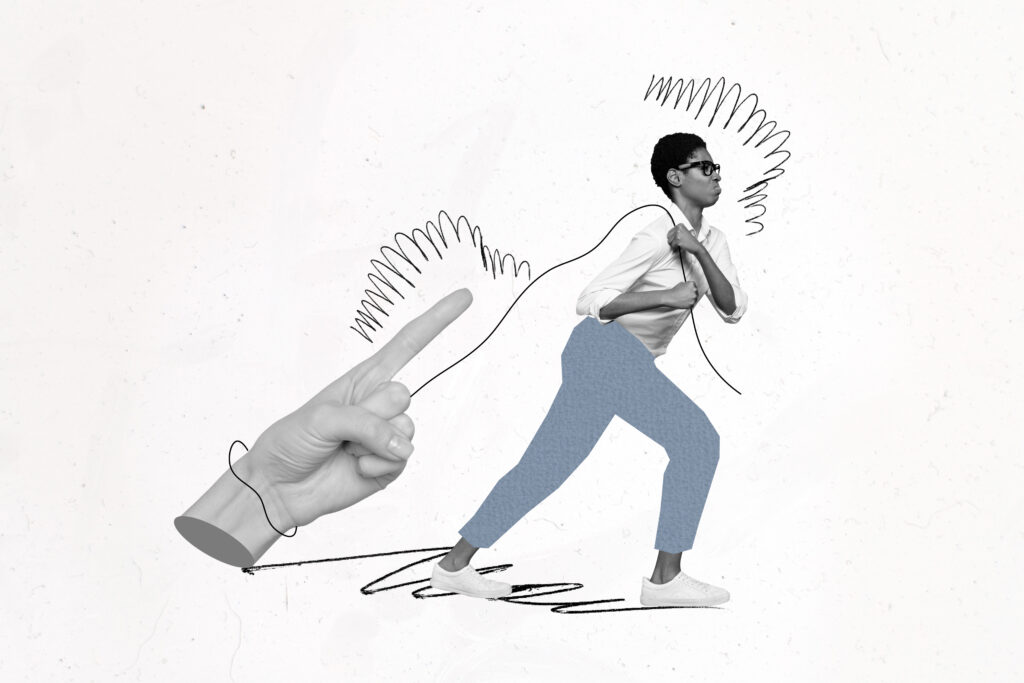
by Julie Snell, Director of Housing at LGBT Life Center
When I entered my first WLW (women-loving-women) relationship, I was overwhelmed by the excitement of love and connection. It felt like a fresh start, a world of possibilities with someone who understood my identity, my experiences, and my heart. But what I didn’t realize then was that love, in its most toxic form, can sometimes wear a mask of affection. I didn’t recognize subtle signs of emotional abuse and manipulation, despite years of education and working with survivors of abuse.
At first, everything seemed perfect. My partner showered me with affection, made me feel seen, heard, and understood. However, over time, small comments began to take root, from dismissive remarks about my feelings, criticisms disguised as “concern,” and boundaries that were slowly pushed aside without my consent. It was only after reflecting on the relationship (well after it ended) and speaking to others who had been through similar experiences that I started to understand the layers of abuse I had endured.
In LGBTQIA+ relationships, especially in WLW dynamics, emotional abuse and manipulation can sometimes be harder to identify. The uniqueness of our experiences, the societal pressures we face, and the desire for connection within a marginalized community can create a perfect storm for manipulative behaviors to thrive. Love can sometimes turn into control, and affection into a tool for power.
So, What Is Emotional Abuse?
Emotional abuse is often subtle and insidious. It can start small with an offhand comment, a slight comment, or a seemingly innocent behavior. But over time, these actions accumulate, creating a toxic environment where the survivor feels trapped, controlled, and invalidated. Emotional abuse is more than just words; it can be about controlling emotions, behaviors, or even self-worth. In LGBTQIA+ relationships, this may manifest in ways that are unique to the intersectionality of queer and gender-diverse experiences.
Common Signs of Emotional Abuse in LGBTQIA+ Relationships
- Gaslighting: Gaslighting is when one partner makes the other question their reality or perceptions. In an abusive relationship, this can look like denying things that were said or done, making the survivor feel crazy or paranoid for having valid concerns.
- Isolation: A partner may try to isolate their significant other from friends, family, or support networks. This can create a dependency where the survivor feels that their abuser is their only source of love and validation.
- Blame Shifting: In emotionally abusive relationships, the abuser may constantly shift blame, making the survivor feel responsible for the problems in the relationship, regardless of the circumstances.
- Constant Criticism and Devaluation: At first, the compliments may feel like genuine admiration, but over time, the abuser may criticize or devalue the survivor’s worth. They might put the person down for things they once praised, making them feel small or unworthy.
- Conditional Love: Emotional abusers may offer love only when it is convenient for them. They may use affection as a bargaining chip or as a reward for “good behavior,” leaving the survivor feeling emotionally exhausted and constantly striving for approval.
- Control and Possession: Emotional abuse can also manifest as an unhealthy need for control. A partner might dictate the survivor’s actions, friendships, or choices, often under the guise of caring or concern.
Why LGBTQIA+ Relationships Can Be Vulnerable to Emotional Abuse
In LGBTQIA+ relationships, the nuances of emotional abuse can be more difficult to recognize. Often, the pressure to fit into mainstream heteronormative ideals can make it difficult to seek help. The fear of being judged or misunderstood can deter someone from speaking up about the abuse they are experiencing. On top of that, the desire to find solidarity within a marginalized community can sometimes cloud one’s judgment, making them overlook red flags.
Breaking Free from Emotional Abuse
If you or someone you know is experiencing emotional abuse in a relationship, know that it is not your fault. You deserve to be in a relationship where love and respect are mutual, where boundaries are honored, and where you can grow as an individual without fear or manipulation. If you’re unsure about whether you’re experiencing abuse, talk to someone you trust or reach out to the LGBT Life Center, which has an IPV Crisis Coordinator who specializes in LGBTQIA+ issues. Healing from emotional abuse can take time, but you are worthy of support and care.
Remember, emotional abuse doesn’t always look the way we expect it to. It can come in many forms, but it is never love. If you find yourself in a relationship that makes you feel small, invalidated, or controlled, it is important to reach out for help and give yourself permission to walk away. Your worth is not determined by anyone’s ability to manipulate you.
Healing is possible, and you deserve the love and respect that you give to others.
Learn more about how LGBT Life Center can help, or get in contact with us, at lgbtlifecenter.org/ipv.
Connect with us!
Tiktok.com/@lgbtlifecenter
Facebook.com/LGBTLifeCenter
Instagram.com/LGBTLifeCenter
Sign up for our monthly newsletter by clicking here.
Leave a Reply